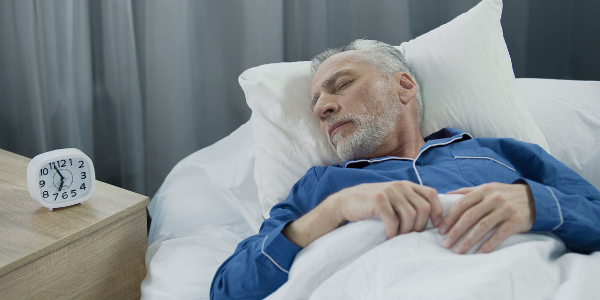We all know that the average person needs seven to eight hours of sleep every night, but new research reveals how our sleep requirements change with age.
Why Is Sleep Important to Our Health?
Regardless of age, meeting the proper sleep requirements is essential to our overall health. This is true because getting sufficient sleep allows our body to perform specific functions that promote good health. As you sleep, your brain is busy processing the events of the day, forming long-term memories. This is often why people who don’t get enough sleep experience poor memory recall and poor concentration.
This is also a period of resting for your sympathetic nervous system, which controls the fight-or-flight response. When this system isn’t given the opportunity to rest, an individual experiences physical symptoms, such as hypertension. Some research suggests this may also explain why a sleep deficiency is linked to a greater risk of heart disease. Your immune system also goes to work to heal the body as you sleep by releasing helpful proteins called cytokines. These proteins help the body fight infection, inflammation and trauma caused by injuries and illnesses. This is why you feel better after a good night’s sleep.
How Does a Lack of Sleep Harm the Body?
The opposite is also true in that failing to get enough sleep can actually harm our health in certain ways. If you’re struggling with weight management or weight loss, a poor sleep cycle may be to blame. During sleep, the brain releases a variety of hormones that help regulate the body’s various functions. This includes hormones that control hunger and appetite. When you don’t meet your body’s sleep requirements, this distribution of hormones is inhibited, and that may lead to more frequent hunger cravings.

The risk for type 2 diabetes is also increased for those failing to meet their nightly sleep requirements. Getting less than six hours of sleep per night can cause healthy individuals to develop prediabetes. The same research found that adjusting sleep to compensate for that sleep debt reversed the condition. Similarly, those with pre-existing type 2 diabetes exhibited poorer blood glucose levels as a result of sleep deprivation.
How Do Sleep Requirements Change with Age?
Our sleep needs continuously change, starting with the moment we’re born. Newborns up to three months old require up to 17 hours of sleep each day. Although this sleep is usually divided into three-to-four-hour naps, they will continue to need to maintain a heavy sleep schedule. Even infants up to 11 months require as much as 15 hours of sleep in each 24-hour cycle. That sleep schedule steadily decreases as children age, with young children needing 13 to 14 hours per day and older children up to age 13 needing 11 hours of sleep each night.
As children become teenagers, their circadian rhythm has developed and operates in relation to the changing of day into night. This means they won’t be able to fall asleep as early even though they will still need to awaken early in the morning for school. As such, they need to be getting nine to 10 hours of sleep each night.
The recommended seven to nine hours of nightly sleep applies to adults, but these are also the ages during which bad habits develop. The use of alcohol, tobacco and especially caffeine disrupts the sleeping cycle. While you may become accustomed to getting fewer hours of sleep, this doesn’t mean your body requires less sleep. Although you may not feel it, getting less sleep as you age will contribute to the health problems you experience.
Age-related conditions can also contribute to sleep problems, such as is the case with menopausal women. As a woman goes through menopause, she can experience hot flashes when she’s trying to sleep. This interrupts the sleep cycle in the early stages of the process. After about 90 minutes of sleep, REM sleep begins and hot flashes won’t disrupt the cycle. This can occur nightly or several times a week and can be a consistent problem for months or several years, but it will eventually subside.
If you’re not getting enough sleep, you should begin by looking for natural ways to improve your sleep cycle. This may involve turning off electronics one hour before bed and engaging in relaxing activities, or you could try replacing your bedding with more comfortable fabric. If you have made positive changes to promote restfulness and still can’t get enough sleep, consult your doctor.





